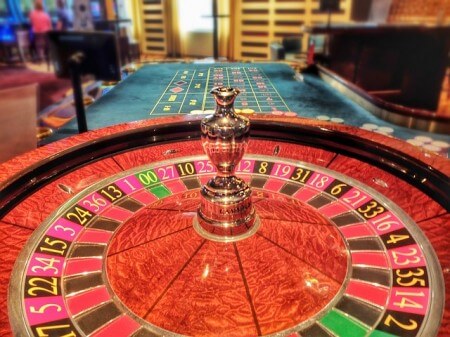The New Hampshire house is in the process of voting to allow two casinos to be established in the state, when about a month ago the same house voted down establishing just one.
If this sounds crazy, it is just a barometer of how gambling has become a valid source of revenue for many states, while at the same time it is opposed by many anti-gambling and conservative groups. As in the case of New Hampshire, the decision falls into the hands of politicians who have to separate money from politics – an odd political decision in the United States these days.
I used to live in New Hampshire near the boarder of Massachusetts, a state that has its own share of casino woes for basically the same reasons – politics and money. The city of Boston attracts visitors for a number of reasons, and the western part of the state is a short car ride to New York, New York. Yet despite the presence of Boston’s Logan airport and being a key gateway to the East Coast, there is still politicking and squabbling going on over the use of city and state resources. Personally, I think they are missing the riverboat on this one, as the present competition among the five regional states – Connecticut, New Hampshire, Vermont, Rhode Island, and New York – is limited, with New York being the lone significant competitor for residents in the western part of the state.
But New Hampshire is a state that does not offer much in the way of tourism except its natural environmental beauty, which is just fine for many people. Its bordering states to the north and west, Maine and Vermont, offer much of the same environmental assets that attract tourists and they are not likely to become casino havens. But like many states, dwindling coffers are forcing states to look for new sources of revenue.
The argument for supporters of the casinos is that Massachusetts will begin benefiting from the money of New Hampshire residents since they will simply cross over the state line to gamble in one of Massachusetts three casinos and one video slot parlor that have already been approved, with more to come. Those who are paying attention to recent gambling trends know that Pennsylvania took scads of money from New Jersey (yes, even Atlantic City), Ohio, and other surrounding states after legalizing state casinos about 10 years ago. So it is no secret what will happen when Massachusetts starts gaining gaming momentum.
Current estimates have the two New Hampshire casinos adding $168 million annually to the state’s budget. While that may not seem like a significant amount, 65 percent of the state’s budget benefits the education and health and human services departments. If budget cuts were to become necessary down the roads, it is almost certain these departments would see some cuts, lowering the quality of life in the state. Delaying passing legislation approving casino construction would delay actual revenues by about two years. That would put New Hampshire two additional years behind states like Massachusetts. Democratic Governor Maggie Hassan supports licensing only one casino, trying to appease both sides of the issue.
Opponents of casino creations say that such a step would hurt the state’s image to visitors and tourists. If we can be honest here for a moment, when people think about going somewhere for hot casino action, the state of New Hampshire does not immediately come to mind. Allowing two casinos to be built with a total of 5,000 slot machines is not likely to attract the big money gamblers. New York currently has 22 applicants for new state casinos to be built. New Hampshire is not likely to have its image hurt – it will still be considered a place with natural beauty and a pristine environment. As a Massachusetts resident, if I wanted to travel to seriously play slots I would take a five-hour ride to New York.
The supporters of the casinos seem to be targeting New Hampshire residents, not wooing outsiders to invade the state. Preventing money leaving the state to recreational gambling is not akin to attracting tourists and visitors from other states and establish New Hampshire’s gambling sites as a major source of revenue. The position of the supporters seems to actually be conservative rather than radical.







